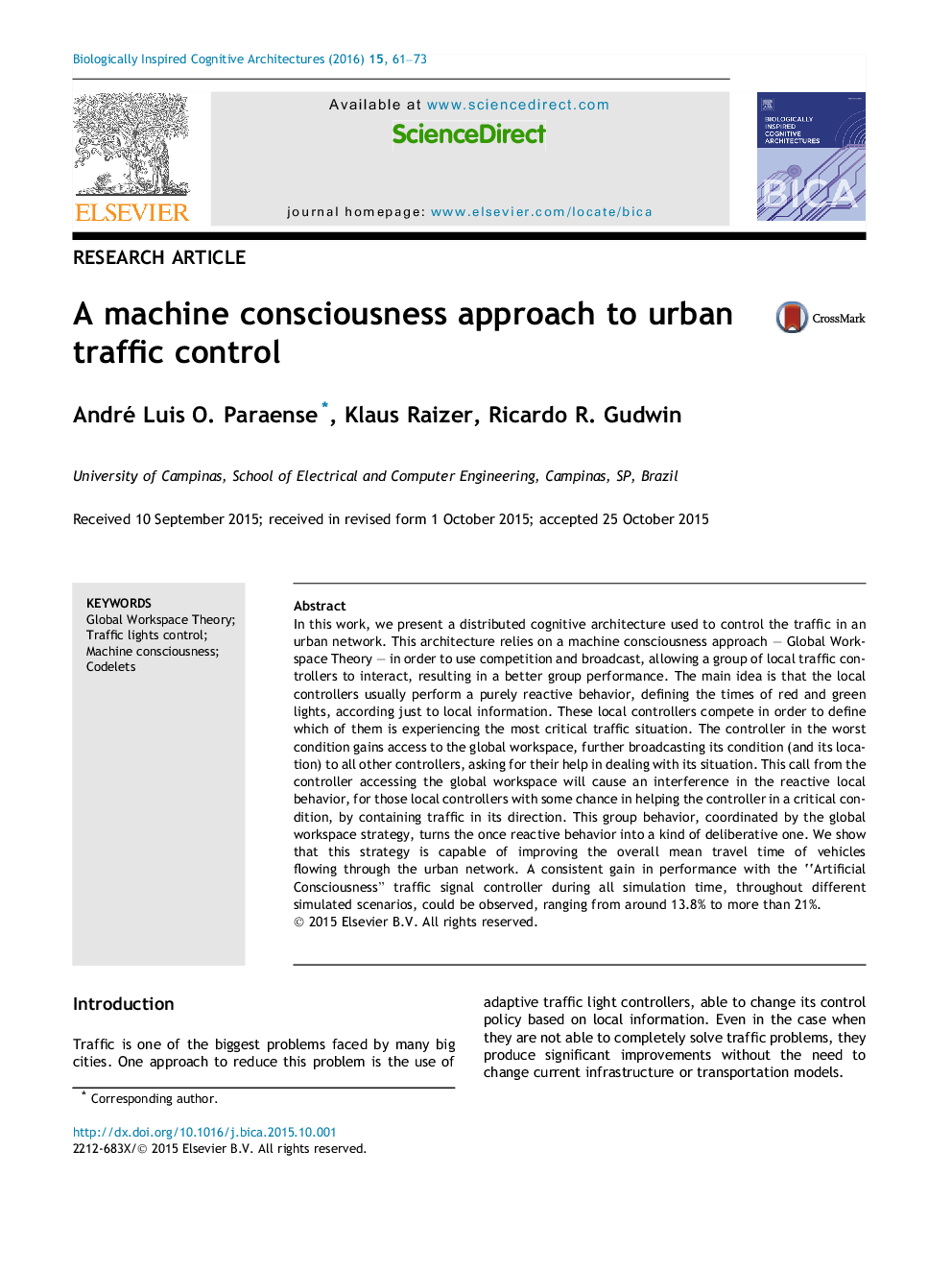| کد مقاله | کد نشریه | سال انتشار | مقاله انگلیسی | نسخه تمام متن |
|---|---|---|---|---|
| 378241 | 659006 | 2016 | 13 صفحه PDF | دانلود رایگان |
In this work, we present a distributed cognitive architecture used to control the traffic in an urban network. This architecture relies on a machine consciousness approach – Global Workspace Theory – in order to use competition and broadcast, allowing a group of local traffic controllers to interact, resulting in a better group performance. The main idea is that the local controllers usually perform a purely reactive behavior, defining the times of red and green lights, according just to local information. These local controllers compete in order to define which of them is experiencing the most critical traffic situation. The controller in the worst condition gains access to the global workspace, further broadcasting its condition (and its location) to all other controllers, asking for their help in dealing with its situation. This call from the controller accessing the global workspace will cause an interference in the reactive local behavior, for those local controllers with some chance in helping the controller in a critical condition, by containing traffic in its direction. This group behavior, coordinated by the global workspace strategy, turns the once reactive behavior into a kind of deliberative one. We show that this strategy is capable of improving the overall mean travel time of vehicles flowing through the urban network. A consistent gain in performance with the “Artificial Consciousness” traffic signal controller during all simulation time, throughout different simulated scenarios, could be observed, ranging from around 13.8% to more than 21%.
Journal: Biologically Inspired Cognitive Architectures - Volume 15, January 2016, Pages 61–73
